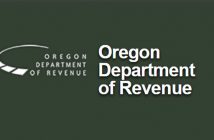
In the wake of the U.S. Court of Appeals for the D.C. Circuit’s decision in Noel Canning, businesses are faced with uncertainty regarding the current state of labor law, and some businesses are attempting to leverage the uncertainty in their favor. On January 25, 2013, the D.C. Circuit court ruled that the President illegally bypassed the Senate when he appointed two of the three current members of the National Labor Relations Board in January 2012, which means the NLRB has not had the necessary quorum to decide cases since January 4, 2012.
During the time period when the NLRB lacked the necessary quorum, it issued nearly 600 decisions and orders, including cases overturning decades of precedent and expanding employees’ rights under Section 7 of the National Labor Relations Act. For example, the Board ordered employers to turn over confidential witness statements taken during workplace investigations, which overturned 34 years of precedent (Piedmont Gardens, 359 NLRB No. 46); and the Board ordered employers to increase the times when union dues are deducted directly from employees paychecks, which overturned more than 50 years of precedent (WKYC-TV Inc., 359 NLRB No. 30).
We also saw the Board breathe new life into Section 7 of the NLRA, which provides that employees have the right “to engage in concerted activity for the purpose of collective bargaining or other mutual aid or protection.” The Board used Section 7 to target non-union employers like never before. It scrutinized common and seemingly innocuous handbook policies, including mandatory arbitration clauses (DR Horton Inc., 357 NLRB No. 184), at-will employment disclaimers (American Red Cross of Arizona, Case No. 28-CA-23443), and social media policies prohibiting posting statements that damaged the company’s or any person’s reputation (Costco Wholesale, 358 NLRB No. 16; Hispanics United of Buffalo, 359 NLRB No. 37). As a result, the Board found that many non-union employers violated labor law and the Board ordered these employers to reinstate terminated employees with back pay.
Under the D.C. Circuit Court’s ruling, the Board has lacked authority to issue any decisions and orders since January 4, 2012; however, the NLRB’s view is that Noel Canning applies to only one specific case. In response to the D.C. Circuit Court’s decision, Board Chairman Mark Gaston Pearson said, “the Board has important work to do … [and]we will continue to perform our statutory duties and issue decisions.” In the six weeks since the Noel Canning decision, the Board has issued more than ten decisions. On March 12, 2012, the NLRB said it will appeal the Noel Canning decision to the US Supreme Court.
In the wake of Noel Canning, employers have attempted to take advantage of the case and have challenged the Board in several different ways. One employer filed a petition with the D.C. Circuit Court asking the Court to prevent the Board from hearing any unfair labor practice charges until a lawful quorum exists, and the D.C. Circuit Court ordered the Board to respond to that petition. Another employer filed a lawsuit seeking to prevent the NLRB from enforcing an order allowing a union election. Still other employers have challenged decisions by NLRB Regional Directors who were appointed by invalid NLRB members. Other options available to businesses include refusing to comply with penalties ordered by the Board or seeking reconsideration of Board decisions from the D.C. Circuit Court.
All employers should consider citing Noel Canning and raising the issue that the Board lacks a quorum to issue decisions and orders in matters pending before the NLRB.
Until the U.S. Supreme Court reviews the Noel Canning case, businesses should carefully consider how they will address labor issues. Regardless of the ultimate conclusion on whether the Board has had lawful authority to decide cases since January 2012, the NLRA will not be repealed, and employers still have to comply with labor laws. Employers who completely ignore decisions issued by the Board in 2012 risk a future Board deciding all the 2012 decisions were decided correctly, and, potentially, ordering employers to reinstate employees with back pay and interest.
The only certainty is that employers will continue to face challenges navigating the rough seas of labor law in the coming year.
Kyle Abraham is an attorney with Barran Liebman LLP where he represents management in labor and employment law. Contact him at 503-276-2132 or at kabraham@barran.com. To learn more about the NLRB’s latest rulings, please join us for an April 3rd seminar on the topic. More information can be found at www.barran.com under our Seminars tab.




